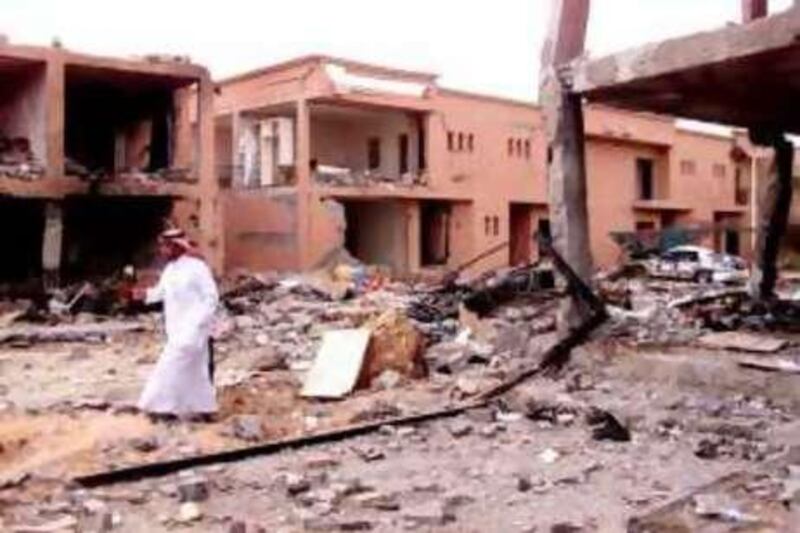RIYADH // Saudi Arabia intends to put on trial nearly 1,000 suspects charged in a wave of al Qa'eda-inspired terrorist violence that killed 90 civilians, both foreigners and Saudis, the interior minister announced. It was the first time the government has disclosed the number of defendants accused of terrorist-related crimes being held in its prisons. "We have started to bring before the judiciary 991 people implicated in various incidents," Prince Naif bin Abdul Aziz, the interior minister, told the Saudi Press News Agency late Monday. "Each case will be examined in stages."
On Monday, the interior ministry formally delivered charging documents involving the defendants to a Saudi court, in what appears to be formal indictments. The justice ministry has not yet announced a date for the first in what will be a series of trials that are expected to take place in Riyadh, Damman and Jeddah. The venue of each proceeding will be determined by the location of the terrorist incident involved in that particular trial. Prince Naif said the 90 civilians were killed in 30 violent attacks beginning in May 2003, when three residential compounds in Riyadh were targets of suicide bombers. The last known operation was the foiled attack on Saudi Arabia's largest oil-processing plant in 2006.
In addition, 74 members of Saudi security forces died as a result of the violent campaign of "al Qa'eda in the Arabian Peninsula", as the extremist movement here called itself, according to the official statement carrying Prince Naif's remarks. The minister added that 657 members of the security forces and 439 civilians had been wounded during the extremists' violent campaign, and that state security forces had foiled more than 160 "terrorist operations". The trials will take place within the regular court system, which is based on sharia. A government source said the first trial of about 70 suspects is expected to focus on the May 12 2003 simultaneous suicide attacks on three residential compounds in Riyadh, which killed 35, including nine extremists, and injured 160. Saudi officials previously have said that the cell responsible for those assaults had been organised by Turki al Dandani. He headed the list of most-wanted Saudis issued May 7 2003, just five days before the attacks took place. He was later killed in the Saudi city of Jouf during a violent clash with police forces in July 2003. Last month, Prince Naif told a group of visitors that the suspects "all will be transferred to the judiciary to give its verdict on them in accordance with what God has ordained to prevent sedition... We don't punish anybody except on the basis of a court verdict," local papers reported. The New York-based rights group, Human Rights Watch, has requested permission of the Saudi government to observe the trials. Saudi court proceedings are normally closed, and judges have wide discretion about who can enter the courtroom. Even foreign diplomats are often denied access to hearings involving their nationals. cmurphy@thenational.ae





